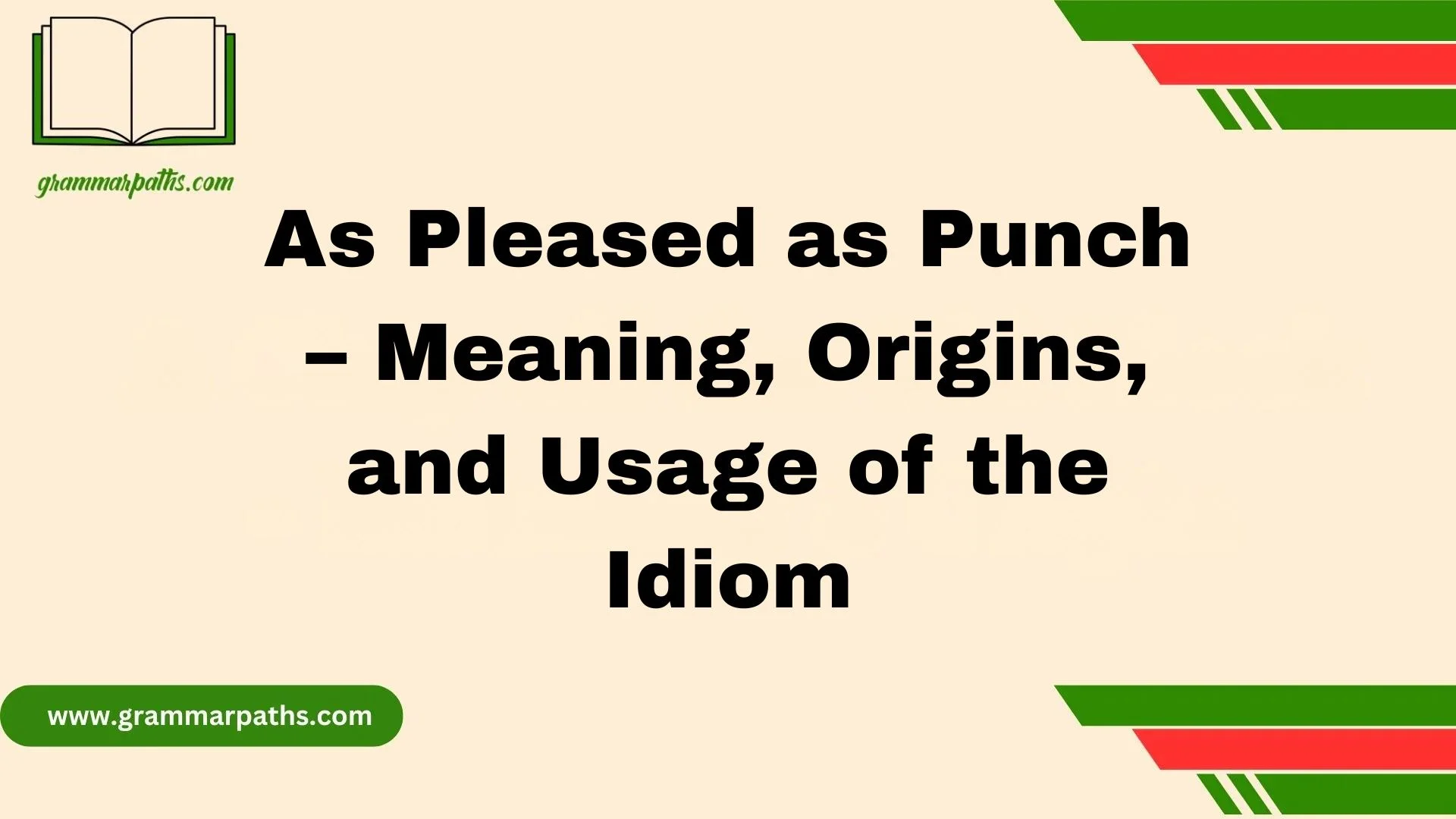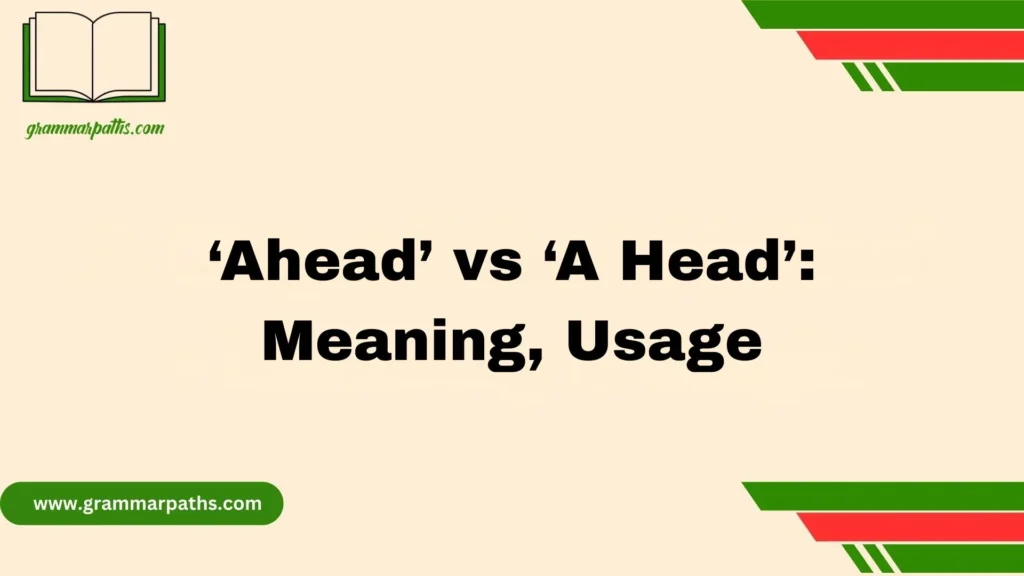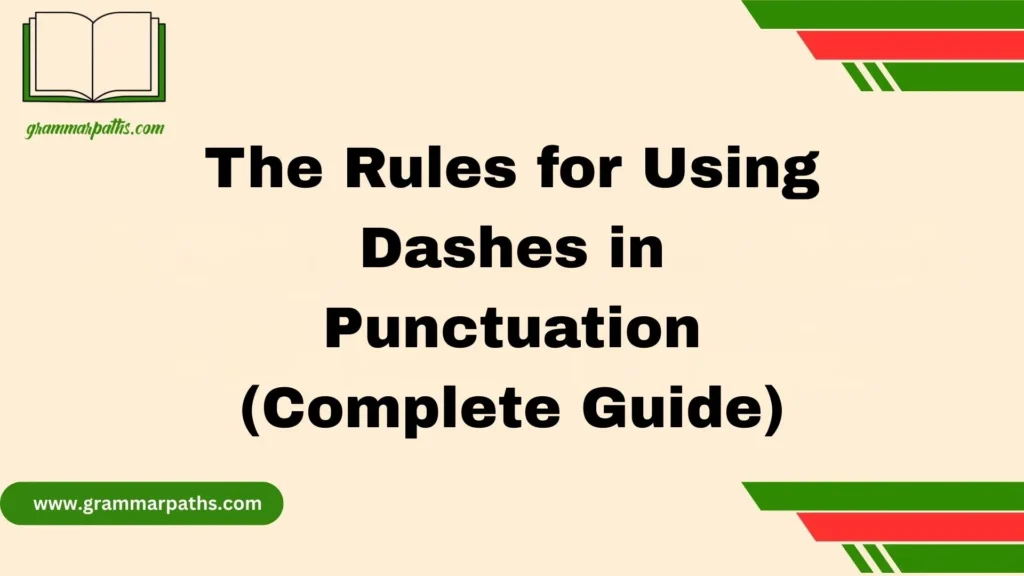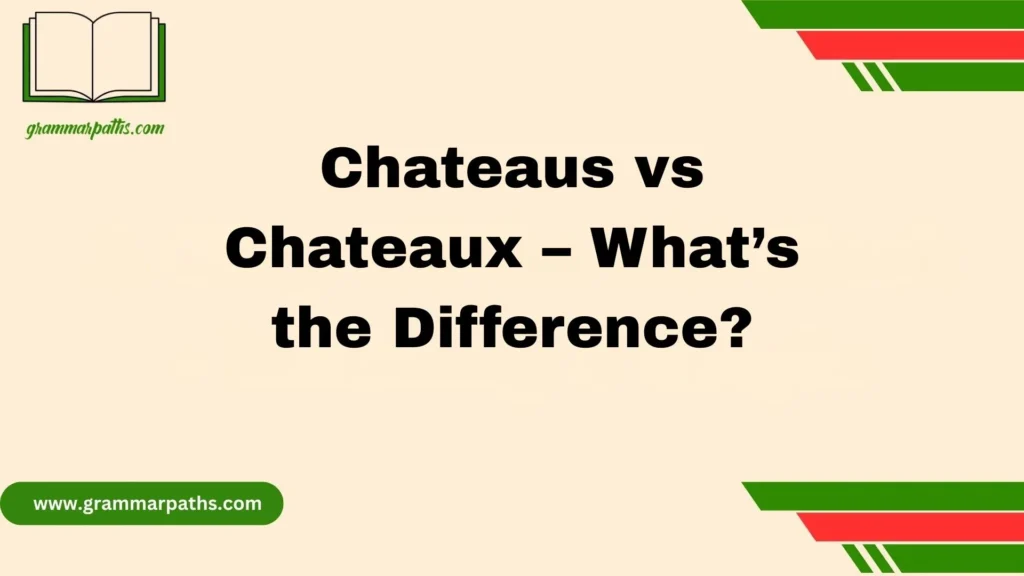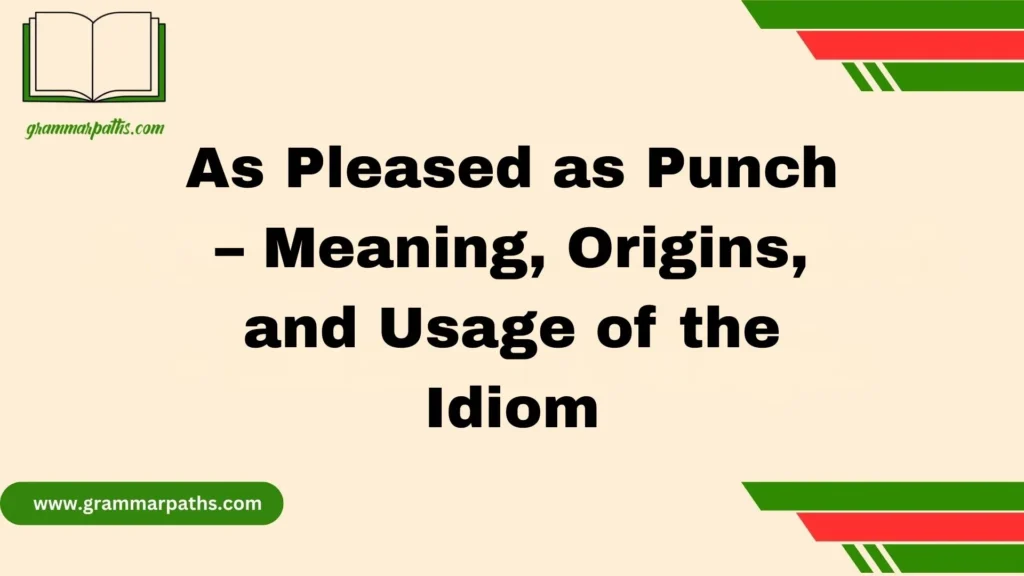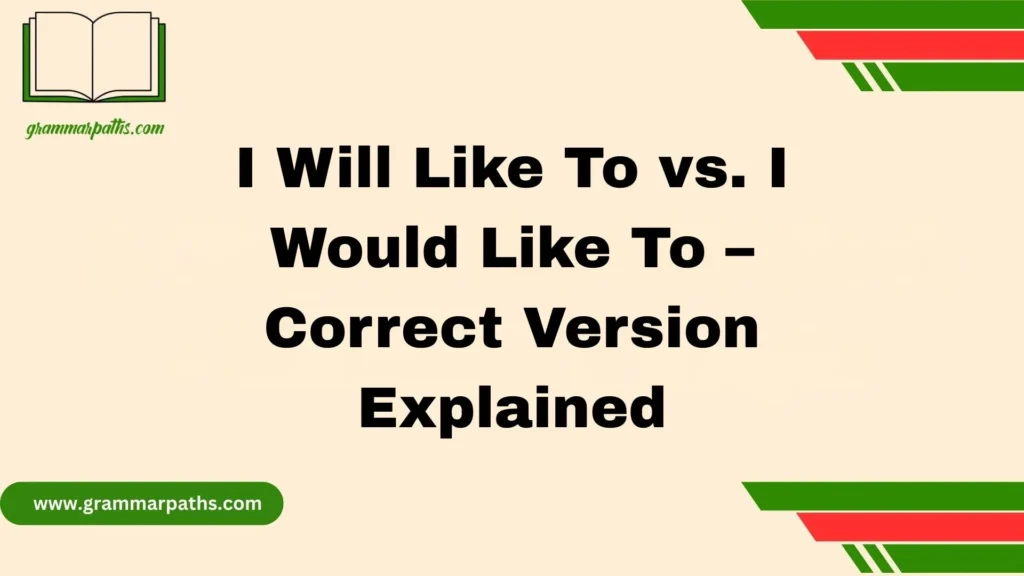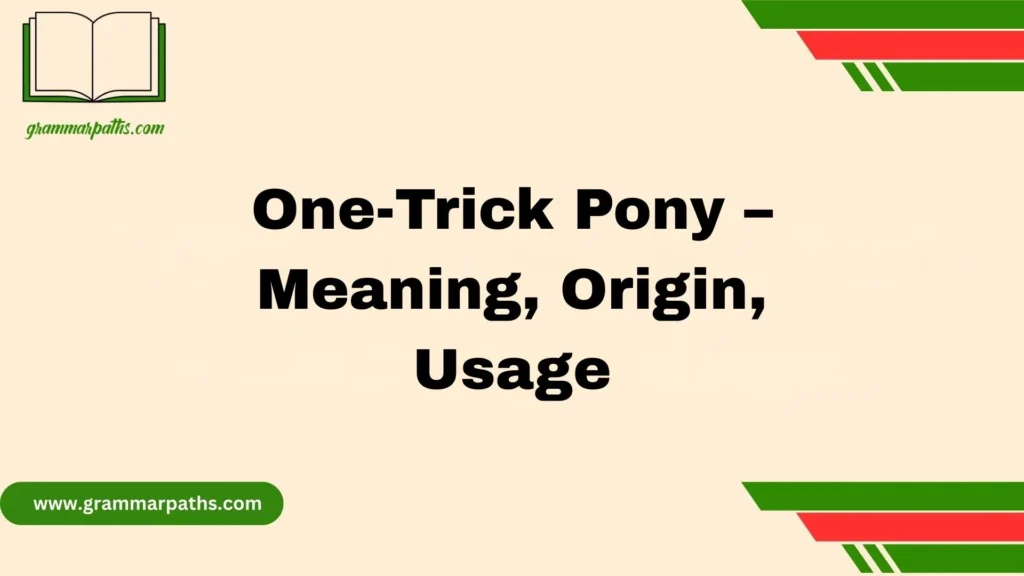The English language is full of colourful idioms, and one of the most cheerful expressions is “as pleased as punch.” This popular phrase is used to describe someone who is extremely happy, delighted, or proud about something. It paints a vivid picture of joy, often used when someone feels satisfied with their achievements, compliments, or good news. Idioms like this enrich our conversations, giving them personality and depth.
The origin of “as pleased as punch” can be traced back to the character Mr. Punch from the traditional Punch and Judy puppet shows of the 17th century. Mr. Punch was known for his mischievous and gleeful behavior, always laughing with pride at his own antics. Over time, his exaggerated happiness became associated with the idiom, symbolizing a state of being overjoyed and self-satisfied.
Today, this phrase is still widely used in both British and American English, often in casual speech or writing. Whether describing a child excited about a gift, an employee recognized at work, or someone celebrating personal success, “as pleased as punch” conveys a universal sense of delight and contentment.
Definition of “As Pleased as Punch”
At its core, “as pleased as punch” describes a state of great delight, joy, or self-satisfaction. It’s often used when someone feels happy about an achievement, outcome, or situation.
Example:
- “She was as pleased as punch when she saw her name on the honor roll.”
- “After winning the raffle, he was as pleased as punch with his luck.”
Nuances in Meaning
- Delight: Pure happiness, often visible through smiling or laughter.
- Self-satisfaction: Sometimes it implies being pleased with oneself, even smugly so.
- Intensity: Stronger than simply saying “happy” or “pleased.”
| Phrase | Emotion Strength | Notes |
| Happy | Mild | General contentment |
| Pleased | Moderate | Satisfaction, approval |
| As pleased as punch | Strong | Cheerful, delighted, sometimes smug |
| Thrilled | Strong | Intense excitement, not always self-focused |
This nuance is why “as pleased as punch” often conveys more than just happiness—it’s happiness with a touch of personal pride.
Origins of the Idiom
The phrase traces its roots back to 17th-century England, where it was directly linked to a character named Mr. Punch from the famous Punch and Judy puppet shows.
The earliest recorded use dates to the 1660s–1680s. The English playwright John Fletcher is often credited with early references to Punch, though the idiom itself became widespread later in the 18th and 19th centuries.
Mr. Punch, known for his high-pitched laugh and mischievous behavior, was often portrayed as being extremely pleased with himself—especially after playing a trick or getting away with mischief. Audiences quickly associated his glee with smug delight.
Key historical fact:
- The word punch here doesn’t refer to the drink. It directly comes from Pulcinella, a stock character in Italian commedia dell’arte, which evolved into the English puppet character Punch.
So when people began saying someone was “as pleased as Punch,” they were essentially comparing that person’s joy to the self-satisfied laughter of Mr. Punch.
Punch and Judy’s Cultural Impact
To fully understand this idiom, it helps to know who Punch was.
The Puppet Show Legacy
- Punch and Judy shows were a form of street entertainment in England starting in the mid-1600s.
- The characters were based on Italian commedia dell’arte, adapted for English audiences.
- Mr. Punch became infamous for his violent, slapstick humor and his signature cackle.
Character Traits of Mr. Punch
- Mischievous: Loved to cause trouble for others.
- Self-satisfied: Always delighted in his own cleverness.
- Cheerful cruelty: Often pleased when he outwitted or hurt another character.
Because of this, the idiom carried a layer of smugness from its earliest uses.
Quote from a 19th-century description:
“Mr. Punch, after every mischief of his own making, laughs and chuckles in a manner that shows he is as pleased with himself as a man can be.”
This cultural connection cemented the phrase in everyday English.
Evolution of Meaning Over Time
Originally, “as pleased as punch” implied not just joy but also smug self-satisfaction, much like Mr. Punch himself. Over time, however, the expression softened.
- 18th century: Mainly used in Britain with the original smug undertone.
- 19th century: Gained popularity in literature and newspapers, often used for children’s delight.
- 20th century: Expanded to American English, where the smugness largely faded.
- Today: Commonly used to mean simply “delighted” or “thrilled.”
| Century | Typical Meaning | Example |
| 1700s | Smug delight | “He was as pleased as Punch at his trickery.” |
| 1800s | Cheerful pride | “The boy was as pleased as Punch with his new toy.” |
| 1900s | Simple happiness | “She was as pleased as Punch to see her friends.” |
| Today | Joyful delight | “They were as pleased as Punch when the deal closed.” |
This evolution shows how idioms adapt, sometimes losing their sharper edges.
Usage in Literature, Media, and Journalism
Writers and journalists have long favored “as pleased as punch.” It adds color and a touch of humor to descriptions.
Famous Literary Uses
- Charles Dickens used it in David Copperfield (1850):
“I am as pleased as Punch to be sure.” - William Thackeray in Vanity Fair (1848) referenced Punch’s glee.
Journalism and Everyday Writing
The phrase appears frequently in 19th and 20th-century newspapers, often describing community events, contests, or personal achievements.
Modern Media Examples:
- Used in lifestyle blogs and magazine headlines to highlight cheerful stories.
- Sometimes appears in children’s books, since the imagery is playful and accessible.
Its staying power proves its versatility across centuries.
Examples in Everyday Speech
Let’s look at how you might hear or use this idiom in conversation.
Casual Use:
- “I’m as pleased as Punch with how dinner turned out tonight.”
- “They were as pleased as Punch when their kid won the spelling bee.”
Professional Context:
- “Our client was as pleased as Punch with the project results.”
- “Management was as pleased as Punch to announce the new partnership.”
Formal vs Informal
- Informal: Fits naturally in friendly conversations, emails, or casual storytelling.
- Formal: Works in journalism or light-hearted business communication, though it may sound quaint.
This flexibility makes the idiom useful, though in strictly formal writing, synonyms like “thrilled” or “delighted” may be preferred.
Comparative Idioms Across Languages
The feeling of delight is universal, but idioms vary from culture to culture.
| Language | Idiom | Literal Translation | Meaning |
| English | As pleased as punch | – | Delighted, joyful |
| American English | On cloud nine | – | Overjoyed |
| American English | Tickled pink | – | Greatly amused or delighted |
| French | Aux anges | “With the angels” | Ecstatic happiness |
| German | Aus dem Häuschen sein | “Out of the little house” | Overjoyed, thrilled |
| Spanish | Más feliz que una lombriz | “Happier than an earthworm” | Very happy |
These idioms highlight how cultures use different imagery to capture the same emotion.
Modern Relevance and Adaptation
Is “as pleased as punch” still relevant today? Absolutely. But its usage depends on audience and context.
- Still Alive: Common in British English, especially in writing and older generations’ speech.
- In the US: Recognized but less frequently used; younger speakers may find it quaint.
- In Education: ESL teachers often include it when teaching idioms, since it has a fun origin story.
Pop Culture Influence
While not as dominant as “on cloud nine,” the idiom still pops up in magazine headlines, books, and nostalgic references. It survives because it paints such a vivid picture.
Common Mistakes and Misinterpretations
Because the idiom is old-fashioned, people sometimes misinterpret it.
Common Errors
- Mixing with the drink: Some assume it refers to being pleased after drinking punch.
- Dropping the nuance: Using it to mean only “pleased” without the sense of delight.
- Tone mismatch: Using it in serious contexts where it may sound too light or dated.
- “She was as pleased as Punch when the plan worked out.”
- “The guests were as pleased as punch after drinking punch.” (confuses the meaning)
Case Studies and Real-Life References
Journalism Example
- The Times (London, 1898):
“The mayor was as pleased as Punch at the turnout of the crowd.”
Analysis: Used to convey civic pride and cheerful satisfaction.
Literature Example
- Dickens in David Copperfield:
“I am as pleased as Punch.”
Analysis: Used as a character’s voice to show lighthearted joy.
Business Example
- Tech press release (fictional modern example):
“The startup’s CEO was as pleased as Punch to announce record growth.”
Analysis: Modern adaptation in professional tone.
These examples show the idiom’s flexibility across centuries and contexts.
Conclusion
The idiom “as pleased as punch” is more than just a fun phrase—it’s a reflection of how language borrows from culture and history. Rooted in the antics of Mr. Punch from the famous puppet shows, this expression has stood the test of time and still brings charm to everyday conversations. Whether you use it in a casual chat, storytelling, or even in writing, it instantly conveys delight, joy, and self-satisfaction.
Learning and using idioms like this not only makes your communication more expressive but also connects you to the rich traditions of English. So, the next time you’re feeling extra happy about something, don’t just say you’re glad—say you’re “as pleased as punch!”
FAQs
Q1: What does “as pleased as punch” mean?
It means to be extremely happy, delighted, or satisfied with something.
Q2: Where does the phrase come from?
It originates from the Punch and Judy puppet shows of the 17th century, where Mr. Punch was known for his mischievous laughter and pride.
Q3: Is “as pleased as punch” still used today?
Yes, it is common in both British and American English, often in casual and expressive conversations.
Q4: Can this idiom be used in formal writing?
It’s best suited for informal or creative writing rather than formal or academic contexts.
Q5: What are some synonyms for “as pleased as punch”?
Similar phrases include over the moon, thrilled, delighted, and ecstatic.

Emma Brooke is a passionate language expert and contributor at GrammarPaths.com, where she helps learners navigate the complexities of English grammar, idioms, and effective writing. With a strong academic background and years of teaching experience, Emma excels at turning tricky grammar rules into simple, practical lessons that readers can easily grasp.
